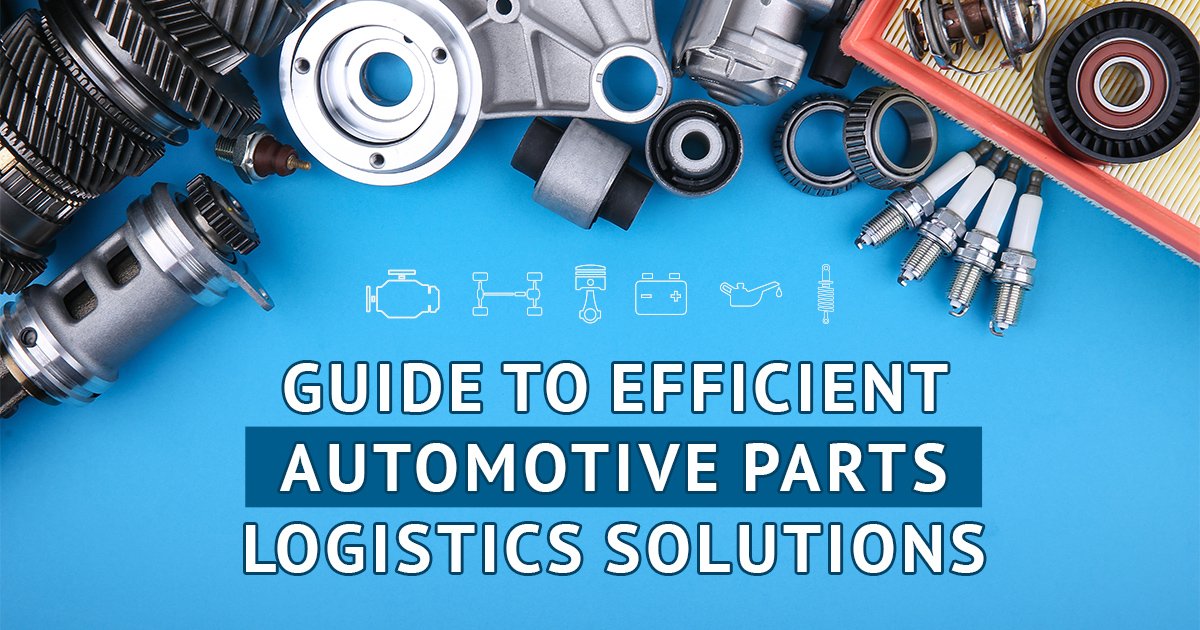
Car production often starts only when customers place orders, so the logistics system needs to be very responsive and adaptable. Effective logistics solutions for automobile parts ensure a consistent supply of required components. Few of the solutions that are known for automotive parts logistics are reverse logistics, blockchain technology, and lean supply chain management.
Introduction
How is the Automotive Parts Logistics Industry in the Philippines?
The Philippines’ automotive parts logistics sector has grown significantly over the past decade. As a major participant in the ASEAN automotive market, the Philippines has now a record-high demand for dependable and effective logistics solutions.
The industry includes a variety of tasks like inventory management, component distribution and transportation, and warehousing. The industry is doing well in spite of obstacles like erratic demand, strict quality requirements, and the requirement for on-time deliveries.
Importance of Efficient Logistics in the Automotive Sector
In an industry where just-in-time manufacturing is the norm, any disruption in the supply chain can lead to significant production halts and financial losses. Efficient logistics solutions enable the seamless flow of parts and components from suppliers to manufacturers, thereby maintaining the continuity of production processes.
The implementation of advanced logistics strategies, such as lean supply chain management and blockchain technology, plays a pivotal role in enhancing transparency, reducing lead times, and ensuring the integrity of the supply chain. Efficient logistics not only improve operational performance but also contribute to cost savings, better inventory management, and higher customer satisfaction.
SEE ALSO:
Automotive Industry and Its Logistics Requirements
What are the Current Trends in the Philippine Automotive Industry?
The automotive industry saw a 31.3% growth in sales in 2022, with 352,696 units sold making the Philippine automotive industry experience dynamic changes, driven by increasing consumer demand, economic growth, and government initiatives.
One notable trend is the rise in vehicle sales, particularly for passenger cars and light commercial vehicles, as urbanization and disposable incomes grow. Additionally, there is a significant shift towards eco-friendly vehicles, with more consumers and manufacturers showing interest in electric and hybrid models.
The government’s Comprehensive Automotive Resurgence Strategy (CARS) program is also fostering local production by providing incentives to manufacturers who meet certain production thresholds. These trends collectively highlight the evolving preferences of Filipino consumers and the increasing complexity of the automotive industry in the country.
How Does the Growth of the Automotive Industry Impact Logistics?
Increasing demand for commercial vehicles and light trucks is driving the need for efficient logistics solutions. As the industry expands, the volume of automotive parts and components that need to be transported, stored, and managed increases significantly. The rise in vehicle production and sales also requires logistics providers to adapt to just-in-time delivery models.
Competitive Landscape and Key Players
Who are the major players in the logistics market?
Major players include DHL, UPS, FedEx, Transportify, 2GO Express, and Royal Cargo, among others.
Major logistics providers such as DHL Supply Chain, UPS, and Transportify have established strong footholds in the market. These companies offer comprehensive logistics solutions, including warehousing, transportation, and supply chain management, tailored specifically for the automotive sector.
Local players like LF Logistics and Royal Cargo also play a significant role, leveraging their deep understanding of the regional market dynamics to offer customized services.
Additionally, automotive manufacturers such as Toyota Motor Philippines and Mitsubishi Motors Philippines have developed their in-house logistics capabilities to ensure seamless integration with their production processes.
Auto Parts and Vehicle Expo 2024

The Auto Parts and Vehicle Expo (APVE) 2024 is set to take place from June 5 to 7, 2024, at the World Trade Center in Pasay City, Philippines. This premier event aims to bring together over 4,000 trade attendees and 120 exhibitors from across the globe, showcasing the latest advancements in automotive parts, accessories, maintenance equipment, and tools. Covering an extensive 8,500 square meters of exhibition space, APVE 2024 provides a significant platform for international and regional suppliers to display their innovations and discuss best practices to enhance operational efficiencies and profitability in the automotive industry.
Event Highlights
- Exhibitors and Attendees: The expo will feature more than 120 exhibitors, including manufacturers, distributors, and solution providers from 28 countries. Attendees will have the opportunity to network with key players in the industry and explore cutting-edge products and technologies.
- Focus Areas: APVE 2024 will focus on the automotive aftermarket parts market in Asia, highlighting the increasing demand and supply dynamics driven by emerging economies in Southeast Asia.
- Business Opportunities: The event will facilitate one-on-one appointments between exhibitors and potential buyers, helping businesses identify prospects and expand their market reach.
Knowledge Sharing: In addition to the exhibition, APVE 2024 will host conferences and seminars where industry experts will share insights on the latest trends, technologies, and strategies to improve business operations and meet evolving consumer demands.
